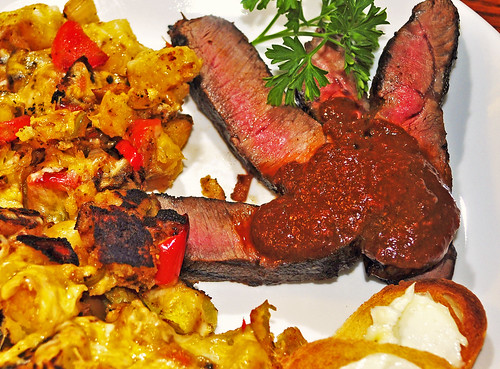I heard this story while waiting for our flight to Houston. All characters live in Houston, Texas, where steak is king, heart disease is a major factor in 40% of all adult deaths, and donuts are 132% more popular than the US average.

''- I went out with my college roommate, his wife, and his wife's boss’ Grandpa, and he turned out to be a very interesting guy. He has invested his money into a California outfit that claims to cure cancer by changing a patients diet. The idea is that if people stop feeding the cancer by eating meat, dairy, juices, alcohol, any processed food, additives - anything, really, but raw and whole fruits and vegetables - the cancer will go away. So, he said he had been eating this way for the last 10 years.
- He had a lot of energy and slept wonderfully. His allergies disappeared since he started eating this way. He has not been sick in years. He immensely enjoyed the taste of the stuff that he was allowed to eat, and did not miss the food that he was not allowed to have.
- The body is capable of producing all the proteins it needs, there is no reason to eat animal products. Adults should not be eating dairy; it is for young kids only. Vegetable juices and oils are not allowed, nor are products of fermentation (wine), distillation (spirits) or refinement (sugar), chemical additives (salt), or any kind of processed food (chocolate, cereal).
- I did this diet for a month, and never in my life had I liked the taste of spinach so much. I could tell the difference in taste between different leaves in a bag of mixed spring greens. My favorite snack was a leaf of spinach wrapped around a piece of Clementine or tangerine and an almond slice. Just as an experiment, I tried nicely prepared grilled vegetables with oil and all the fixings.It smelled of burnt oil and tasted disgusting - to me. (I am sure it was not, though.)
- I found that eating this way has changed my routine. Eating used to take up a certain part of my life, and that part seemed to have disappeared. I was never hungry or full, nor had big meals. Instead, I ate whenever I felt like it, and stopped when I did not want to eat anymore. I went shopping for fresh produce every day, and found that easy and quick. I found myself never really thinking about food.
- I don’t know if they can cure cancer with this diet, but I cannot honestly make fun of the old guy who followed it for many years. Definitely makes for a great story."






